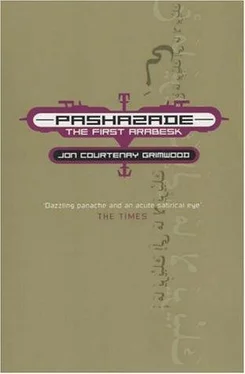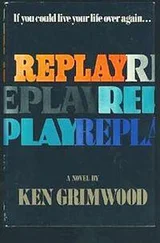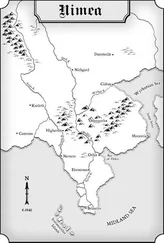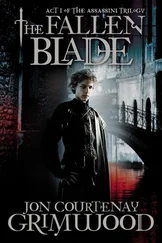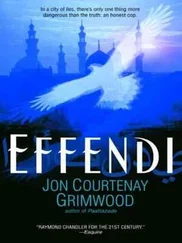He led her round the fountain and then down another path that doubled back inside the vee of greenery that the General had carved for himself out of a section of public gardens.
'So tell me,' said the boy. 'What is so important that you need to see the General?'
'I'd prefer to tell him ...'
'No,' he said seriously. 'You misunderstand. The General is unable to see you, so I am seeing you instead. Now, what did you want to say?'
Haltingly, occasionally exasperated with herself, Zara began to tell him about Ashraf. Not everything, because she didn't mention his time in prison or Raf's belief that he wasn't really a bey. But she told the boy about Felix, about how Ashraf swore that his aunt's death was neither suicide nor his doing. Zara talked about how he'd cleaned up the house and asked her father to get rid of the office where his aunt had been killed so as not to upset Hani. And she spoke of Hani and how the child was afraid to leave Ashraf's side ...
Halfway through, the boy insisted they find a bench and walked away without waiting to see if Zara followed, though the bench he found her was out in the open, unscreened by hedges and in full view of the house. 'This man,' said the boy, when Zara finally finished. 'You know where he is hiding?'
The boy sighed at her silence, then shrugged.
'You don't know, and if you did, you wouldn't tell me?'
'Right.'
'Wrong. You do know and you still won't tell me ...' He looked at Zara, his gaze steady. 'I guess that makes it love.'
After he'd listened to all the reasons why he was wrong, they changed the subject and Zara sat down again. 'America,' said the boy. 'You've been there. What's it like?'
'New York,' she corrected, and then she explained in detail why the two were completely different. How New York was really a part of Europe that Europe had mislaid. Explaining this took more time than she intended.
At the front door, as he was showing her out, Zara paused. 'You will tell the General what I said about Ashraf being innocent ... ?'
'Of course.'
'And there's no chance of my seeing the General himself?'
The boy sighed. 'What do you want with Koenig Pasha,' he asked, sounding slightly wistful, 'when you've already seen the khedive?' And he shut the door, politely but firmly in Zara's face.
Chapter Forty-three
1st August
'Ashraf Bey,' said Raf into a brass grille set in a white pillar on one side of a large metal gate. Above the grille a discreet se vende sign from an exclusive realty agent in Rue de Léglise Copte had a simple strip neatly glue-gunned across the top. When Raf put his hand up to check the sold sign, he discovered the glue was still sticky.
There would be a small CCTV watching his every move. Up in a tree, probably, though he hadn't been able to spot it. Unless, of course, the Minister linked direct to a spysat, which was possible. At least ten private houses in Iskandryia were meant to be protected that way.
That it was only ten said something ... On the Upper East Side whole blocks relied on nothing but spysats and a direct line to one of the top-end private police units. His mother had given him the details in one of her last e-mails, he forgot how many years before. She might have written a few more times, of course. Raf didn't know, he hadn't bothered to check that account much.
Static cracked from the speaker grille. 'Ashraf Bey,' said Raf for the third time. So far no one had showed much interest in letting him in. He could scale the gate, no problem. Even the spikes along the top wouldn't give him trouble unless he actually managed to fall on one. Weather, old age and too many coats of paint had made them blunt, almost rounded.
The Minister isn't here.'
'I know that,' Raf said. 'I want to talk to Lady Jalila.'
There was another burst of static and then silence.
'The question,' said a different voice when it came, 'is whether Lady Jalila wants to see you ...' The words were cool, ironic.
'I don't know,' said Raf. 'Do you?'
The click of a bolt recessing was his answer, though no one appeared to show him the way and the mastiff that lolloped across a gravel path towards him seemed not to have been told he was allowed to enter.
'Heel.' Letting his hand brush the mastiff's head, Raf kept walking and heard rather than saw the animal fall into step beside him. No fear, at least not of animals. Let Lady Jalila make of that what she liked.
The house was old made modern. Once-stuccoed walls stripped back to stone and a roof retiled in pale grey slate. Old-fashioned windows had been sandblasted back to bare metal frames, glazed with smoked glass and covered with wrought-iron bars that were ornate and obviously handmade to order, but were bars all the same.
The front door was heavy and studded, pale oak polished to a shine. This could be her taste, or maybe not. It seemed a little too self-consciously modern and American for the Minister but perhaps Raf had misunderstood him.
'Your Excellency is most welcome.' It was obvious from the quiver in the maid's voice that he was anything but ...
'I don't bite,' Raf told her, 'whatever you've read in the papers.' He waited for the French girl to stand aside and when she didn't he pushed gently past, eyes instantly adjusting to the darkness. The decor within was as ruthlessly modern as without. Black floors, glass walls, the only nod to classical taste being two large abstracts, one each side of the hall, on walls that were otherwise bare.
'Rothko,' said Lady Jalila. 'Mid-period. Not his best work but that's all locked up in museums.' She had a glass of clear liquid in one unsteady hand and a tiny pearl-handled revolver in the other.
'Medicinal,' Lady Jalila said, holding the glass up to the light. 'You can ask my doctor.'
'And the gun?'
'Safety, darling. You're a dangerous killer — or don't you catch the news ... ?'
'I've been busy ...'
'Tell me about it. Apparently that little girl you almost married now thinks you're innocent ...' Lady Jalila lowered the revolver and took a gulp from her glass. When she surfaced the glass was empty and even at a distance Raf could smell the gin on her breath. 'But we both know different, don't we?'
The only thing Raf knew was that she was drunk and armed. And if anyone had come up with a more lethal combination than alcohol and a gun then Raf had gone through remand with his eyes closed. 'Look,' said Raf, 'I need to ask you some questions about my aunt.'
'About Nafisa?'
'That and a few other things ...'
Lady Jalila laughed. 'Oh,' she said as she gently touched the barrel of her gun to Raf's cheek, 'I can talk about things for ages. You'd better come up.' She turned towards a rise of open steps, only to turn back. Take the afternoon off,' she told her maid ...
'In here.' Lady Jalila threw open an upstairs door and Raf found himself in a drawing room with a white suede sofa, a long onyx table and floorboards of stripped cedar. Another, much smaller painting decorated one wall. A simple slash of red above a slash of dark blue, the paint thin, uneven and not quite covering the canvas.
'Unique,' she said heavily. 'Worth more than both of the ones in the hall. He didn't see it, of course. Thought it should be cheaper because it was smaller.'
He was the Minister, Raf decided, not Rothko.
Lady Jalila sighed. 'You have no idea how tiresome life can be ...'
Raf looked round at the tiny but priceless Persian rug hung in one corner, the impossibly rich Moroccan burgundy of a leather beanbag big enough for a giant. At the single sprig of flowers in a Venetian vase filling the whole room with a perfume headier than incense.
'No,' he said. 'Probably not.'
Lady Jalila poured him a gin and tonic, dribbling Bombay Saphire over three lumps of ice and adding not enough tonic. A dash of bitters from an unmarked bottle finished the preparation. There was a fresh lime cut into slices on a saucer at the side but she didn't bother to add it to his drink or hers. 'I'd ask you to make them,' she told him, 'but you'd probably only get it wrong. Men do.'
Читать дальше
